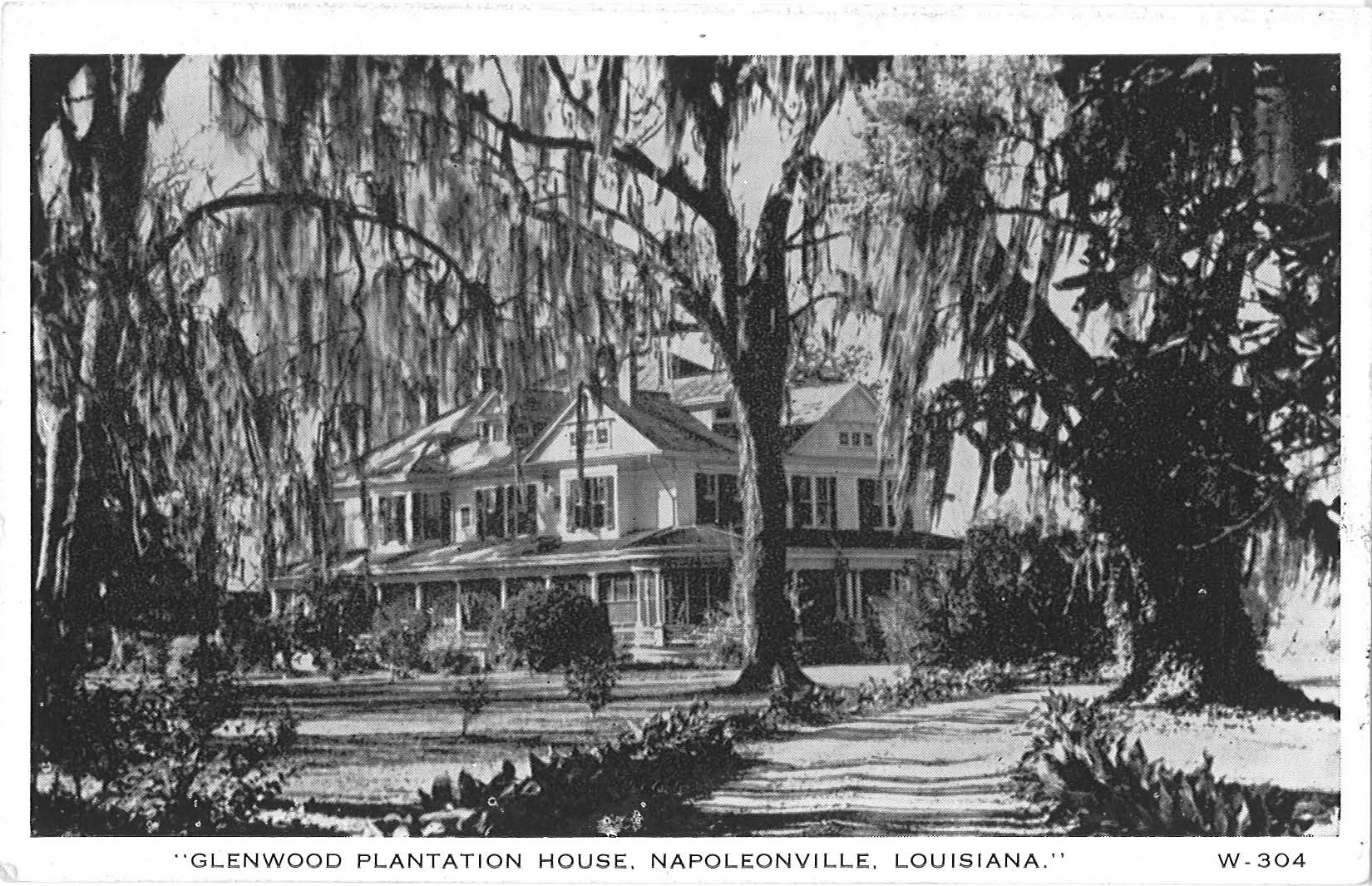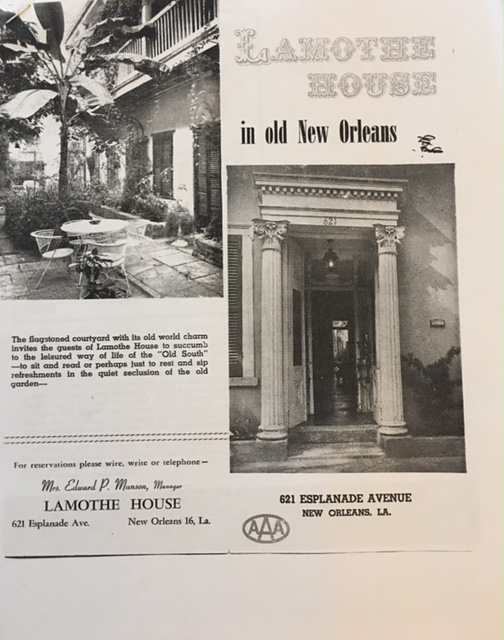New Orleans has got soul – there is no doubt in that. It is, my opinion, one of the most unique cities in our country, with no shortage of spirit, French influences and inexplicable southern sophistication. And anyone that has followed C&C for a while knows how much I adore the city's sentiments and my own family history it has played host to. A celebratory weekend trip presented an opportunity to visit a once-treasured hotel deeply tied to my family's Louisiana lineage...
My Great Grandparents, Edward and Gertrude Munson, owned Glenwood, a sugar plantation estate where they entertained and delighted guests with their southern graces in the form of dinner parties, stately accommodations and infamous café brûlot. They were an elegant, intoxicating couple and the pace of life at Glenwood, just west of New Orleans, was slow and seducing. Described as "an atmosphere of romantic charm and beauty" on a vintage postcard (below), the property was encapsulated by mossy oaks, scents of magnolia and pecan trees. My Great Grandmother Gertrude, dubbed as "Miss Gertrude" was just as enchanting and bewitching, as evidenced in a profile piece in the 1955 installment of Reader's Digest titled "The Most Unforgettable Character I've Met" (read here). 
"But those who love the scent of sweet olive and mimosa, or the Louis Philippe rose, or the old ways of the South, succumb to Glenwood's spell."
- Reader's Digest, 1955.
Despite the magic "spell" that captivated the plantation for decades, a series of events occurred forever changing Gertrude's famed Glenwood. Tragically, after the war, the cane-growing business took a hit and the mosaic disease destroyed a great deal of crops. Just in time, my Great Grandmother Gertrude triumphantly saved the plantation by allowing guests to come stay at the plantation for a fee. An ad was discreetly placed, stating:
"Louisiana couple living in their ancestral mansion will take winter guests; fine food; informal atmosphere."
Of those winter guests was one of the most celebrated - Louise Crane (of Crane & Co. Stationary). Louise had stayed at Glenwood for several months at a time, and became dear friends with my Great Grandmother Gertrude. Even more dismally, after Glenwood was revitalized, the plantation burnt to the ground. This, understandably, left my Great Grandparents in a state of uncertainty and instability far from their days of opulence. Around this time, a tender invitation by Louise Crane was made, welcoming my Great Grandparents to help manage her newly acquired hotel in the French Quarter of New Orleans. The Lamothe House Hotel, on Esplanade Avenue was the beginning of their life in New Orleans.
For many years, the hotel served as a southern sanctuary, with an enchanting garden in the exterior courtyard. Instructions to "wire, write or telephone" to make a reservation appear in this advertisement.
My Great Grandparents worked fastidiously with Louise to create a hotel that provided their guests with the same level of graciousness as Glenwood. The hotel was a passion project of sorts, and one that my family was deeply attached to. It saw a great deal of success in the early days with cheerful guests coming and going, and frequently profiled in press and publications for its charming accommodations.
The Lamothe House Hotel, on the cover of Southern Living's March 1981 issue.
For years growing up, my sister and I would hear tales of the famed Lamothe House and our connection to the south. My Father was even at one point a bell boy! Our first introduction to the hotel was during a family stay in our younger years, where memories of the fish pond in the enclosed garden and a narrow, dimly lit hall with its perimeter lined in antique mirrors and marble-top consoles lived in my young mind. While this was our first introduction, we were perhaps too young to truly savor the overall experience in the crescent city.
Last weekend, joined by my sister again - now twenty years later from our initial visit - we meandered over to Esplanade Avenue to revisit The Lamothe House. We couldn't help feel a bit removed from the history and saddened by seeing that aesthetically, the hotel had seemingly lost a great deal of its southern stature. Its tall french shutters were slightly tattered, and that narrow hall I had recalled felt lonely and lost in the era of Miss Gertrude and Louise. In the courtyard, a gardener was fastening a potted hibiscus to a trellis, while young women lounged poolside. While there were young patrons and evidence of new life, it seemed to linger in a former sentiment. In my mind, as we roamed around, I refused to accept the present, still holding on to the bygone era of those that shaped its place in New Orleans, the life Miss Gertrude, Louise Crane and the other characters helped cultivate. It is for these stories I will forever remain connected to New Orleans.
To read more on Miss Gertrude and Glenwood Plantation, visit here.








